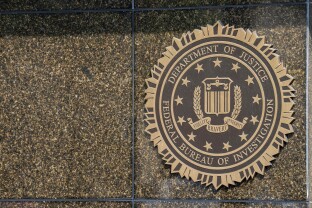Congress is at an impasse over whether to give Americans stronger privacy protections under the nation’s foreign surveillance laws. But lawmakers remain in the dark about a basic question underlying their debate: Just how many Americans are swept up in U.S. foreign spying in the first place?
Fierce disagreement among lawmakers prompted House Speaker Mike Johnson to delay a vote last week on renewing Section 702 of the Foreign Intelligence Surveillance Act, which expires in April. The fight is over whether to require intelligence agencies to get a warrant when searching their databases for information about Americans. Americans cannot be targeted under the law, but sometimes their communications are swept up when they communicate with foreigners who are being surveilled.
Critics contend that searching the U.S. spy databases for information about Americans amounts to warrantless surveillance. The Biden administration and many lawmakers in both parties oppose a warrant requirement.
Yet a fundamental mystery has persisted since 2008 when Congress first granted intelligence agencies this authority. Just how many Americans are affected by the program in the first place? Thirty thousand? Three million? Three hundred million?
For years, civil society groups and lawmakers of both parties have been asking for an answer, and for just as long, U.S. intelligence agencies have cited technical and legal constraints to beg off generating even an estimate.
“I think that database is humongous and impacts millions of Americans,” said former Rep. Bob Goodlatte, a Virginia Republican who is now working for a bipartisan coalition of civil liberties groups pushing a warrant requirement and other reforms to U.S. intelligence programs. But exactly how humongous? He never found out — not even as the former chair of the House Judiciary Committee the last time Congress renewed Section 702.
Neither has the Oregon Democrat, Sen. Ron Wyden. Wyden, who has used his perch on the Senate Intelligence Committee to ask questions about civil liberties of intelligence community officials for more than 10 years.
“It is totally unacceptable that the American people remain in the dark about how many U.S. persons have their communications swept up by warrantless 702 surveillance, even as Congress is debating how to reform that sprawling program,” Wyden said in a statement to NOTUS. “It is notable that the number of 702 surveillance targets has nearly doubled since the program was last reauthorized, to about 250,000 people. Americans who have communicated with any of those targets — for any reason — could have their communications collected and searched without a warrant.”
In 2017, he got Dan Coates to commit in his confirmation hearing as director of National Intelligence to try to generate an estimate. Top national security officials met for months with civil society groups, lawyers inside the community and technical experts. They concluded that there was no way to do an estimate because of the difficulty of determining whether someone is an American from a digital identifier like an email.
“It’s total nonsense that the [intelligence community] knew or could know the number but just didn’t want to give it out,” said Glenn Gerstell, who was general counsel of the National Security Agency during the debate. “We were all absolutely eager to find a way to give an estimate of incidental collection, but no matter how we tried, the fact of the matter is that there’s no way to tell if an email from ‘Toughguy12’ is from an ISIS terrorist in Syria or a guy in Houston.”
Wyden remains unsatisfied, saying that he has proposed numerous ways by which the intelligence community could make an estimate.
There have been outside proposals to make estimates. One proposal by two computer scientists at Princeton University proposed using a complicated scheme of cryptography to do an estimate while protecting both the intelligence community’s classified information and the privacy interests of those swept up in collection, but it would require cooperation from the service providers.
Sign up for daily updates from NOTUS.
Civil liberties advocates have said that an answer could help inform lawmakers and voters about the scale of the problem they’re trying to address. A program impacting tens of thousands of Americans poses a different privacy problem than one affecting hundreds of millions, for instance.
“Refusing to provide Congress with an estimate of impact on Americans is a wrong example of the bad faith approach to reforming warrantless surveillance,” said Sean Vikta, the senior policy counsel of the progressive nonprofit Demand Progress which is pushing for a stronger warrant requirement. “The American people deserve to know how many people in the United States are getting swept up in this staggering surveillance program.”
—
Byron Tau is a reporter at NOTUS.
Sign in
Log into your free account with your email. Don’t have one?
Check your email for a one-time code.
We sent a 4-digit code to . Enter the pin to confirm your account.
New code will be available in 1:00
Let’s try this again.
We encountered an error with the passcode sent to . Please reenter your email.


